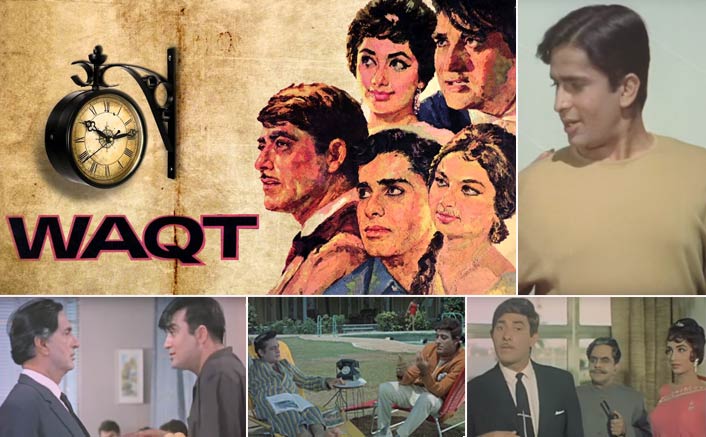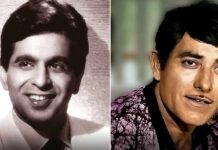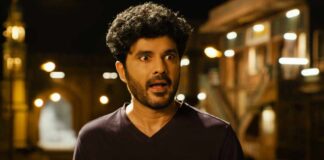Waqt: Here’s a lookback at films that created such a deep impact that they shaped the future of Hindi cinema or film buffs. Whether super-hits, average grossers or even flops in their time, they became cult classics forever.
RK Films’ Waqt (1965)
Produced by: B.R. Chopra
Directed by: Yash Chopra
Written by: Akhtar Mirza & Akhtar-Ul-Iman
Music: Ravi
Starring: Sunil Dutt, Raaj Kumar, Sadhana, Shashi Kapoor, Sharmila Tagore, Balraj Sahni, Achla Sachdev, Madan Puri, Rehman and others

This was the first multi-star film that made us conscious of the potential of the trend, though multi-star films became “in” only a decade later. Before this, the only multi-star movie made was the 1957 Mother India.
Waqt talked about the supremacy of Time (waqt), against which the richest and the hardest-working human being was a mere puppet. A rich couple (Balraj Sahni and Achla Sachdev) with three young boys are split when there is a massive earthquake hits their town. Only the youngest son (Shashi Kapoor) and mother remain together, because he is an infant.
Trending
Individually struggling, but for the middle brother (Sunil Dutt) who grows up to be a lawyer as he is adopted by a rich couple, they all lead lives looking out for each other. How the family comes together again forms the crux of this 206 minute film that does not lose grip even for a second.
Thus this film also remains the mother of all lost-and-found movies in Hindi cinema, though again it was preceded by the 1943 blockbuster Kismat in this theme. As we all know, Manmohan Desai made a fortune from this genre later, and so did many other filmmakers.
Waqt is one of those rare gems that won both critical acclaim and five Filmfare awards and was also a Golden Jubilee (50 week runner in regular shows) and the biggest hit of 1965. Sadhana, then at her peak, and a relatively new Sharmila Tagore were the leading ladies.
Two important trivia here—the senior Chopra wanted Prithviraj Kapoor and his three sons Raj, Shammi and Shashi in the four principal roles, but a top filmmaker friend opined that the audience would find it absurd that they could not recognize each other when they had brief encounters in the film, as the Kapoors had recognizable common features! Due to the scale of the film, Chopra also wanted Shankar-Jaikishan, then the biggest names, but the music duo opted out as they would work only with their own team and not with Chopra’s permanent lyricist Sahir!
Ravi’s music score, aided by Sahir’s brilliant lyrics, stood out for Manna Dey’s Ae meri zohra zabeen, a chartbuster defining perennial romance between a husband and wife with three sons that lives on even today. The haunting theme song, Aage bhi jaane na tu, stated how man should live for the moment, as he can neither control the future nor could he the past.
Ironically for its premise, Waqt remains a timeless masterpiece from one of our foremost banners that blended social content with entertainment.



 Follow Us
Follow Us







